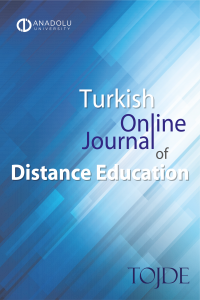Dear Readers,
TOJDE is an open-access, peer-reviewed academic distance education journal. Although distance education has now a history of over 150 years, with the unprecedented developments in digital technologies and new paradigms, there has been an ever-increasing demand for experts and expertise in distance education.
An understanding of the complex world of distance education today clearly requires a reliable knowledge of the current state of art and data-driven projections of future. As such, it requires an ability to identify trends and persistent problems as well as establishing a relationship between particular needs, solutions to problems, and goals to be achieved. Aligned with these, TOJDE is intended to provide readers with scholarly and academic perspectives and research in the field of distance education.
Dr. T. Volkan YUZER, Editor in Chief


